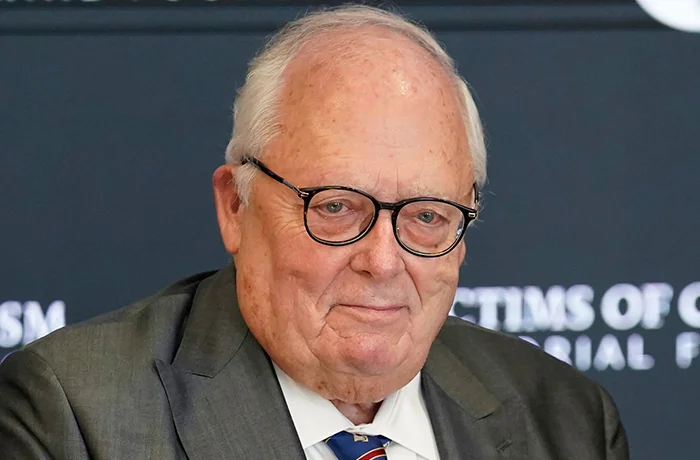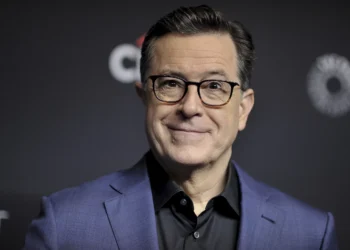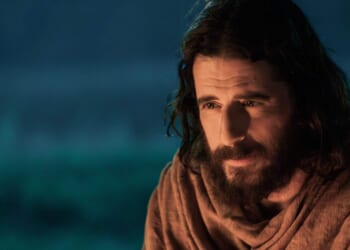When Edwin J. Feulner Jr. strode into Washington, D.C., in the early 1970s, he saw a capital city awash in liberal ideas, with conservative thought relegated to the fringes, a whisper in a town shouting for progressivism. Unfazed, he rolled up his sleeves, co-founded the Heritage Foundation in 1973, and turned it into what Newt Gingrich would later call “the Parthenon of the conservative metropolis.” Feulner, a political scientist with a relentless drive and a knack for turning ideas into action, died on July 18, 2025, at 83, leaving behind a legacy that reshaped the American conservative movement and influenced presidents from Ronald Reagan to Donald Trump.
Born on August 12, 1941, in Chicago, Illinois, to Edwin J. Feulner Sr., a real estate firm owner, and Helen Joan Franzen, Feulner grew up in a devout Roman Catholic family of German descent. His three maternal uncles, all parish priests, instilled in him a sense of purpose and discipline. Raised in suburban Elmhurst, he was drawn to big ideas early, devouring Barry Goldwater’s The Conscience of a Conservative and Russell Kirk’s The Conservative Mind while at Regis University in Denver, where he earned a bachelor’s degree in English in 1963. His intellectual curiosity led him to the Wharton School at the University of Pennsylvania for a master’s degree in 1964, followed by studies at Georgetown and the London School of Economics. In 1981, he capped his academic journey with a doctorate in political science from the University of Edinburgh, his thesis exploring the Republican Study Committee, a group he’d later help shape.

Feulner’s early career was a masterclass in strategic positioning. After stints at the Center for Strategic Studies and Stanford’s Hoover Institution, he landed on Capitol Hill as a congressional aide, first to Republican Rep. Melvin Laird, who later became President Richard Nixon’s defense secretary, and then as chief of staff to Republican Rep. Phil Crane. As executive director of the Republican Study Committee, Feulner honed his ability to translate conservative principles into policy. But he saw a gap: Conservative ideas lacked a dynamic, action-oriented platform. In 1973, alongside Paul Weyrich and Joseph Coors, he founded the Heritage Foundation to fill that void, determined to make it a think tank that didn’t just ponder but pushed.
Taking the helm as Heritage’s president in 1977, Feulner revolutionized the think tank model. He rejected the ivory tower approach, insisting on concise, actionable policy reports that could fit in a lawmaker’s briefcase — a strategy dubbed the “briefcase test.” Under his leadership, Heritage became a powerhouse, producing the Mandate for Leadership, a policy blueprint that became the intellectual backbone of Ronald Reagan’s administration. Reagan, who awarded Feulner the Presidential Citizens Medal in 1989, called Heritage a “vital force.” Feulner’s vision of “big-tent conservatism” united diverse factions, emphasizing free enterprise, limited government, individual freedom, traditional values, and a strong national defense. His mantra, “You win through multiplication and addition, not through division and subtraction,” became a rallying cry for the movement.
Feulner’s influence extended beyond Heritage’s walls. He wrote nine books, including The American Spirit (2012) and Getting America Right (2006), and contributed to countless journals. He served as a public member of the U.S. delegation to the United Nations, advised Reagan on domestic policy, and held leadership roles in the Philadelphia Society, Mont Pelerin Society, and Intercollegiate Studies Institute. His global reach earned him honors from Taiwan, South Korea, and the Czech Republic. Feulner’s tireless travel — logging over 150,000 miles annually — had him with leaders worldwide, spreading the gospel of economic freedom and individual liberty.
Even after stepping down as Heritage’s president in 2013, Feulner remained a force, serving as interim president in 2017–2018 and contributing to Project 2025. He cowrote its afterword and served on Trump’s 2016 transition team, cementing Heritage’s role in shaping GOP agendas. Critics accused him of fueling partisan division, but supporters hailed him as a disciplined strategist who made conservatism a policy-driven force. “Ed Feulner was a giant,” said House Majority Leader Steve Scalise (R-LA), echoing sentiments from figures such as Newt Gingrich and Sen. Mitch McConnell (R-KY).
SUNSET IN AMERICA: AS HERITAGE TURNS 50, ITS PRESIDENT KEEPS HIS EYES ON THE TIME
Feulner’s personal life was as steadfast as his professional one. Married to Linda Leventhal Feulner for over four decades, he was a devoted father to Edwin III and Emily V. Lown and a doting grandfather. A Knight of Malta and member of St. Mary’s Parish in Alexandria, Virginia, his faith anchored his work. His “Feulnerisms,” such as “People are policy,” reflected his belief in mentoring the next generation, leaving a network of leaders across government and beyond.
In his final years, Feulner never slowed down, signing off correspondence with “Onward!” — a nod to his unyielding optimism. As conservatives mourn his loss, we might picture him at Heritage’s helm, grinning as he hands a lawmaker a crisp policy brief, certain it’ll change the game. He’d probably chuckle at the fuss, reminding us, as he often did, “In Washington, there are no permanent victories and no permanent defeats.” Onward, indeed.
Daniel Ross Goodman is a Washington Examiner contributing writer and the author, most recently, of Soloveitchik’s Children: Irving Greenberg, David Hartman, Jonathan Sacks, and the Future of Jewish Theology in America.















